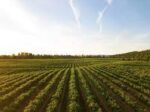Fortifi launches as global food processing automation platform
Acquisition of MHM Automation expands solutions offering and global footprint Fortifi Food Processing Solutions is a unified platform of global leading brands and products within food processing equipment and automation solutions. Operating in more than 15 countries spanning five continents, Fortifi provides a broad range of solutions across the food industry including applications in protein, dairy, and fruits and vegetables. Fortifi’s technologies enhance productivity, maximize yield, and improve worker safety for customers around the world. “Fortifi’s strategy is centered around a relentless focus on innovation, unparalleled customer service, and expansion through continuous improvement and complementary acquisitions of other leading brands and capabilities,” said CEO Massimo Bizzi. “As a strategic partner to our customers, we strive to offer a full portfolio of solutions across the food processing value chain.” The closing of the acquisition of MHM Automation (“MHM”), a New Zealand-based provider of post-harvest processing, protein processing, and packaging solutions, further strengthens Fortifi’s capabilities with innovative, reliable systems and equipment that improve safety, optimize product quality, and extend our automation and robotics capabilities. Fortifi has also signed definitive agreements to acquire LIMA France (“LIMA”), a France-based supplier of meat-bone separators, deboners and grinders-desinewers, and Reich Thermoprozesstechnik GmbH (“Reich”), the oldest Germany-based manufacturer of thermoprocessing food systems, both of which are expected to join Fortifi in the first half of 2024 subject to customary regulatory approvals. The formation of Fortifi began in 2021 when investment funds affiliated with KKR, a leading global investment firm, acquired Bettcher Industries, a leading provider of innovative protein processing tools. The following year, Bettcher acquired Frontmatec, a global supplier of automated pork and beef processing equipment, forming an end-to-end provider of protein processing solutions. MHM adds capabilities across new food processing segments and applications, including dairy and fruits and vegetables, and further expands Fortifi’s global reach by […]










